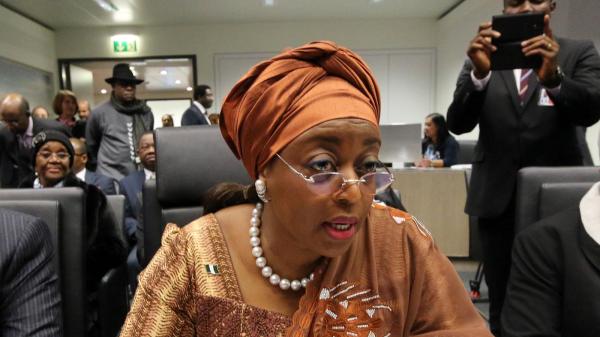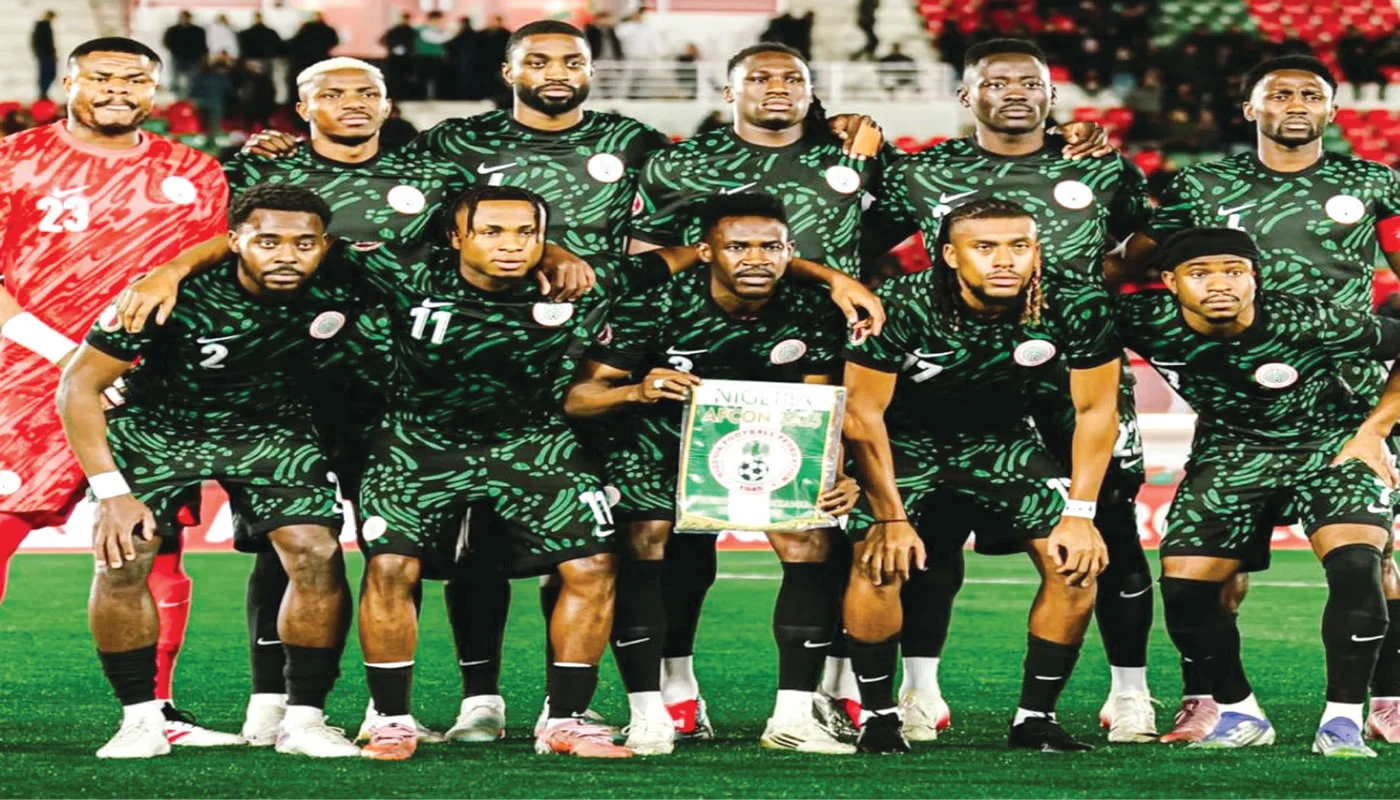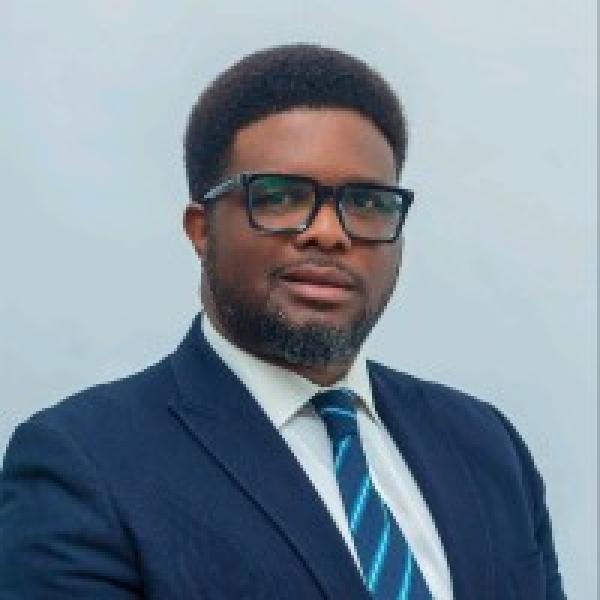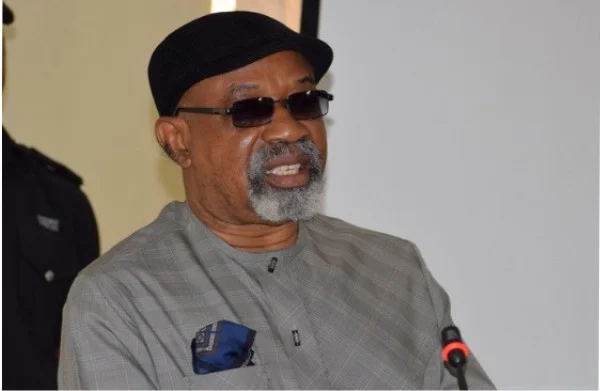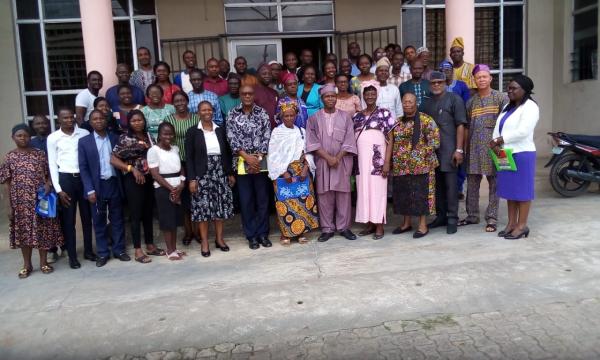
Participants at the European Union’s Land-use change and the Resilience of Food production systems in South-West Nigeria (LucFRes)
Agricultural stakeholders in the workshop held at the Institute of Agricultural Research and Training (IAR&T), in Ibadan, on Thursday, October 6, 2022, under the auspice of the European Union’s Land-use change and the Resilience of Food production systems in South-West Nigeria (LucFRes), have stated that the way in which the land is used today has either negative or positive impact on food security in the future.
Declaring the event open, the director of the institute, Prof. Veronica A. Obatolu, stated that the rate at which agricultural lands are being lost to other usages is alarming and called on policymakers to take the necessary action to avoid doom.
According to the Executive Director, who spoke through Prof. Gabriel Akin Oluwatosin, “If you see the rate at which agricultural lands are being lost to other usages, then you will know that the organisers of this programme have done very well. It is my wish that policymakers will lay their hands on this document so that we can save agricultural life.”
The Executive Director further thanked the conveners of the programme, Prof. Lucia Ogunsumi and Dr Felicia Akinyemi, for such a timely event.
The keynote speaker, Prof. Malachy Oghenovo Akoroda, stressed, among many things, that despite the excessive encroachment on the South-West’s agricultural lands, the available ones are not effectively utilized to achieve the required result, leading to excessive dependence on foods from other places.
According to the professor of Agronomy at the University of Ibadan, if well utilized, the farmers in one state of the geopolitical zone can cultivate crops that could feed the entire region; he however, lamented on the rate at which Nigerians waste resources that could be harnessed to ensure that food security becomes a reality.
Citing from statistics and other calculations, he showed how about two tonnes of maize and 14 tonnes of cassava, requiring about 4808 hectares of land could be enough to feed the about 40 million people in the zone, stating that every human requires about 2,000 calories of energy from food per day.
“About 5,000 hectares of land is required to feed the South-West, if a farmer can amass such amount of land, hunger is defeated in the region. However, who can have such? The only option is to aggregate those fragments and use them effectively. Government has to come in.”
While lamenting the unfortunate incident of smallholder farmers’ experience in the hands of herdsmen, he explained that about 32.42 million hectares of land in the country are already reserved for the herdsmen to feed their livestock on, while about 39.41 are for farmers to grow crops for humans.
In her welcome address, the convener of the event, Prof. Lucia Ogunsumi, stated that the livewire of every society is agriculture and the smallholder farmers are key to the sustenance of agriculture, hence their interest needs to be protected.
“Agriculture is the livewire of any nation and it is expected to give us the highest GDP. The food crops we need to eat, as well as be self-sufficient come from the smallholder farmers.”
On her own part, Dr Felicia Akinyemi, co-convener and awardee of the research’s grant, also agreed that land usage in the region has changed over time and the smallholder farmers are at the receiving end of it, which necessitates the need for their interest to be protected, as well as supported by the government.
Speaking further, she explained that the smallholder farmers have many stories to tell, while citing her experience with a nonagenarian, who has been farming in the region, on a particular piece of land, for about fifteen years, without fertilizer.
According to her, the senior citizen cultivates the land himself, as he cannot afford paying for additional hands, while stating that despite not improving the fertility of the soil, on the piece of land, the old man reported that the soil has been rich for the fifteen years.
“Smallholder farmers hold the key to curtailing the negative impact of agriculture on the environment; they have stories to tell. They need our support. If we have agricultural lands mapped out and we designate them for agriculture, we need to protect them.”
Corroborated the views of the earlier speakers, Prof. James Alabi Adediran, the South-West Coordinator, National Institute of Soil Science (NISS), said that land is important because water and other needs of man come from the land, stressing the need for policies to protect the land as some countries do, by building skyscrapers to avoid land encroachment.
Prof. Gabriel Oluwatosin, a professor of Soil Survey, lamented the experiences of some young smallholder farmers, across the South-West.
He cited an experience in Ekiti state, where some young farmers made efforts to secure a piece of land for the cultivation of cocoa to no avail, stating that the zeal with which the government secures the forest reserve should also be used in securing agricultural lands.
According to him, after all the efforts by the young men had failed, they encroached on a little part of forest reserve; some officials of the state’s agency, in charge of the reserve, saw the anomaly and remained silent until the cocoa started fruiting; immediately, they went and cut down the cocoa trees.
Prof. Stella Williams, former Chairman, African Women in Agricultural Research and Development (AWARD) and founder Nigerian Women in Agricultural Research for Development (NiWARD), lamented that the South Westerners have abandoned their identity and aligned with political ill will, leading to the neglect of agriculture.
They further called on the government to make agriculture attractive to the youths by providing the needed funds and facilities for mechanization, processing, storage and distribution of farm produce, while ensuring that lives and properties are secure and protected.
Discussion segments, as well as technical sessions, were held, under various groups and topics; Dr Olutoyin Fashae led the team in group 1, Prof Akinyele Adesehinwa group 2, Prof Bosede Lawal group 3, Prof James Adediran group 4 and Dr Ibukunoluwa Iroko group 5, while Prof. Samuel Olakojo led a special session on “Land use and smallholder farming systems’ resilience for food production in South West, Nigeria.
In her closing remarks, Prof Chinwe Ifejika Speranza of the University of Bern, Switzerland, co-researcher and supervisor of the research, identified various ways the research could help to solve the problem of food insecurity in the South-West, Nigeria and Africa in general; called for immediate action and collaborative efforts among stakeholders and policymakers, stating that food sustainability affects every areas of our lives, while thanking everyone for the success of the workshop and research in general.
Participants could not contain their joy, as they shared their experiences, as well as their expectation on the impact of the event on the improvement of their farming activities.
According to Olanrewaju Babalola, a female farmer who grows rice and maize, as well as other arable crops and raises livestock like poultry birds and fish, “the government needs to act fast, in making policies that will make lands available to farmers as well as subsidize the cost farming, while providing facilities for mechanization, as the speakers have said”.
Babalola, who was among farmers from Ekiti state and a graduate of Library and Information Science, stated that the government needs to be deliberate about this, otherwise youths will not be interested in agriculture, as they see it as suffering and a dirty job.
Sunny Olalekan, a fish farmer from Lagos state also corroborated Babalola’s views, while Edward Ayo Tolulope, on her own part, stated that the federal government has been helping her and the workshop has opened her eyes on better ways of improving her farm.
Other dignitaries present at the occasion, who added their voices include Prof. Olukemi Bosede Lawal, Head, Agricultural Entrepreneurship Development Centre of the IAR&T, Dr Ibukunoluwa Iroko, Dr Timothy Oluwafemi Ajiboye, an Assistant Director, National Centre for Genetic Resources and Biotechnology, Dr Adedotun Onoyinka Afolayan, another Assistant Director, National Centre for Genetic Resources and Biotechnology.
The Iyalode Agbe of Oyo state, Alhaja Tawakalitu Isola, Drs Bunmi Aluko, Oluremi Ojo, Olugbenga Egbetokun, Margaret Oyedokun, Anjola Fadairo, Niyi Amusat.
Prof. Samuel Olakojo also added his voice, in addition to Mr Matthew Kolawole, Mr Taiwo Odunjo, Mr Ifeoluwa Omodewu, Mr Sunday Omotosho, Mrs Mercy Olowolafe, Mr Dele Boladuro, Mr Ayodeji Idowu, among others.













